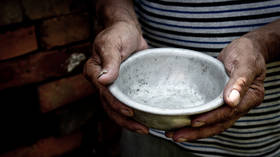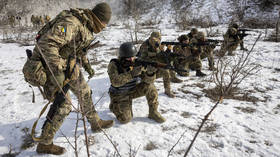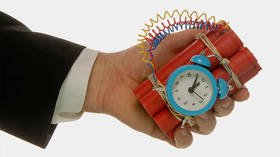Trump threatens to rock Brazil & Argentina with renewed tariffs on metals
US President Donald Trump on Monday attacked Brazil and Argentina over their respective currency depreciations, saying he will immediately reintroduce tariffs on steel and aluminum imports from them.
“Brazil and Argentina have been presiding over a massive devaluation of their currencies which is not good for our farmers,” Trump tweeted, adding: “Therefore, effective immediately, I will restore the Tariffs on all Steel & Aluminum that is shipped into the US from those countries.”
He has also urged the US Central Bank to cut interest rates to weaken the dollar.
Brazil and Argentina have been presiding over a massive devaluation of their currencies. which is not good for our farmers. Therefore, effective immediately, I will restore the Tariffs on all Steel & Aluminum that is shipped into the U.S. from those countries. The Federal....
— Donald J. Trump (@realDonaldTrump) December 2, 2019
“The Federal Reserve should likewise act so that countries, of which there are many, no longer take advantage of our strong dollar by further devaluing their currencies. This makes it very hard for our manufactures & farmers to fairly export their goods. Lower Rates & Loosen – Fed!” Trump urged.
Last year, after having accused the two South American countries of weakening their currencies to get an unfair advantage, the US president imposed a 25 percent tariff on steel and a 10 percent duty on aluminum. He explained the move as a measure to protect American steel and aluminum factories from overseas competition. Brazil and Argentina later secured “permanent exemptions” from the levies.
.....Reserve should likewise act so that countries, of which there are many, no longer take advantage of our strong dollar by further devaluing their currencies. This makes it very hard for our manufactures & farmers to fairly export their goods. Lower Rates & Loosen - Fed!
— Donald J. Trump (@realDonaldTrump) December 2, 2019
Latin America’s third-largest economy, Argentina, is currently facing a deepening economic crisis which has forced the government to impose currency controls in a bid to stabilize financial markets. The country has been in the grip of a recession for over a year, with the peso in a downward spiral.
The eighth largest economy in the world, Brazil, has survived a severe financial crisis from 2014 to 2016, but is now suffering from recession and stagflation.
For more stories on economy & finance visit RT's business section














